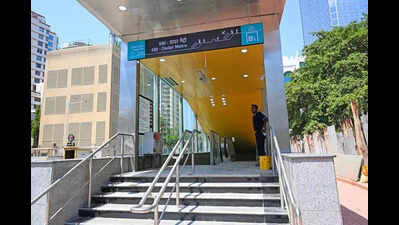- News
- Telcos oppose vendor model for metro 3 mobile network deployment
Telcos oppose vendor model for metro 3 mobile network deployment
Mumbai: Telcos and the Cellular Operators Association of India (COAI) have raised concerns over the Mumbai Metro Rail Corporation Ltd (MMRCL)'s decision to use a vendor-led model for deploying mobile network infrastructure on the upcoming Metro Line 3 (Colaba–Bandra–Aarey). MMRCL has chosen to work with an Infrastructure Provider (IP-I), but telecom operators argue that this approach raises regulatory and consumer interest issues.
The COAI, representing Reliance Jio, Bharti Airtel, and Vodafone Idea, claims that MMRCL's decision to allow an IP-I vendor to install active telecom infrastructure violates the Telecommunication Act, 2023. This act reserves such rights for licensed telecom operators only.
The COAI stated that all three operators offered to install a common In-Building Solution (IBS) network across the underground corridor at their own expense, ensuring seamless connectivity for commuters without any financial burden on MMRCL. However, MMRCL rejected this proposal and selected a vendor through an internal tendering process, denying the telcos Right of Way (RoW) permissions.
An MMRCL spokesperson explained that the intent was to provide cellular connectivity in the underground metro system to all passengers. MMRCL invited bids to set up neutral/common infrastructure that any telco could use, aligning with best practices followed by other large-scale infrastructure projects like airports and metro rails across India.
However, the COAI has argued that this vendor-driven model prioritises commercial interests over commuter convenience and undermines the principle of fair, non-discriminatory access to public infrastructure guaranteed under telecom law. The statement clarified that no telecom operator has signed any agreement with the selected vendor, despite contrary claims in some media reports.
Telcos also highlighted that they do not earn revenue from IBS deployments but were willing to bear the cost in the public interest. A senior official from one of the service providers noted that similar models have been implemented in high-security zones like Pragati Maidan and Central Vista, where telecom operators laid the network without paying any fees.

About the Author
Manthan K MehtaEnd of Article
Follow Us On Social Media








